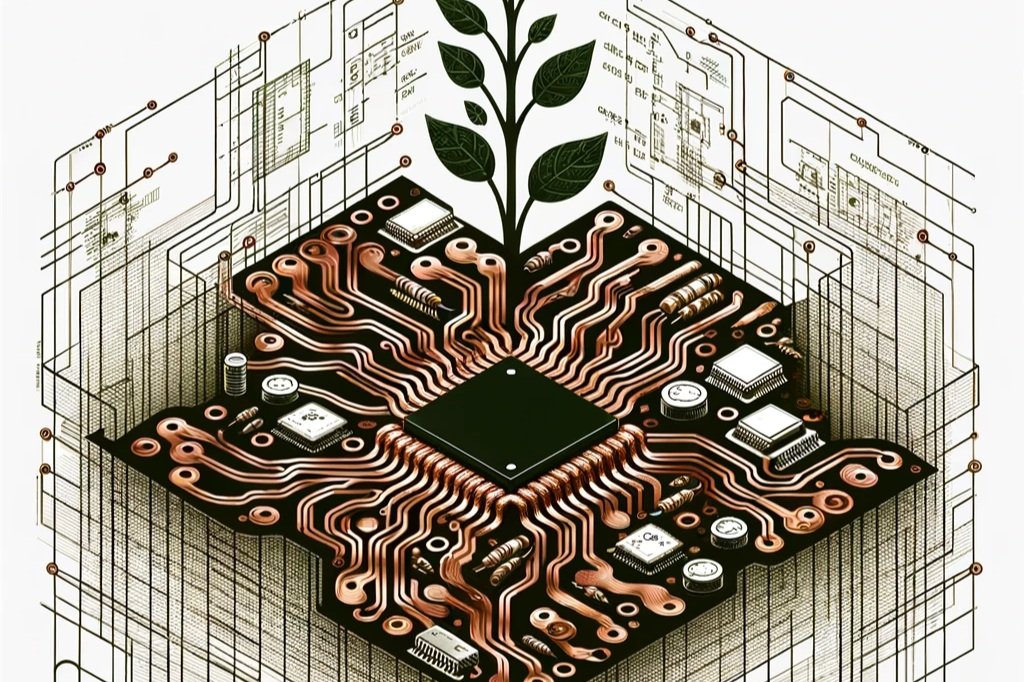Top International Certifications and Accreditations for Eco-Friendly and Environmentally Conscious Hardware Product Manufacturers
Explore key certifications that prove your commitment to environmental sustainability in hardware manufacturing
Application of IoT within a Manufacturing Environment
Discover how IoT is transforming the manufacturing landscape, driving unprecedented efficiency and innovation
Regulatory Compliance Automation & AI for Hardware Products
As regulatory landscapes become increasingly complex, hardware product manufacturers must navigate myriad standards and regulations efficiently. This blog post explores how automating regulatory compliance can significantly enhance efficiency, accuracy, and consistency, and delves into the emerging role of AI in shaping these processes.
The Importance of Strong Problem-Solving Methodology in Product Development
In today's competitive market, effective problem-solving is not just beneficial—it’s essential. Robust problem-solving methodologies can transform challenges into data-driven opportunities, driving innovation and ensuring high-quality outcomes in product development.
Using FMEA to Turn Product-Risk Management into a Data-Centric Activity
Failure Modes and Effects Analysis (FMEA) is a systematic approach for identifying potential failures in a product or process and assessing their respective impacts. By making product-risk management data-centric, companies can greatly enhance product quality and boost customer satisfaction. This post explores using FMEA effectively, highlights the benefits of DFMEA and PFMEA, and includes making score elements objective through matrices.
EU Right to Repair Legislation: Likely Implementation Timings
The EU Right to Repair legislation is a significant step towards promoting sustainability and consumer rights. It aims to ensure that consumers can repair and maintain their products, reducing electronic waste and fostering a circular economy. This blog post explores the likely implementation timings of this legislation and its impact on manufacturers and consumers.
Using RACI to Correctly Identify Stakeholders
Streamline project management and enhance team productivity—discover how the RACI model transforms project chaos into clarity.
Sustainability in Development & Manufacturing: Low Cost/Fast ROI Measures
In a modern business landscape, sustainability is becoming a necessity rather than an option for product manufacturing companies. Implementing low-cost and fast ROI sustainable measures is not only accessible but can also have a significant impact on efficiency, costs, and brand reputation. Below, we explore five measures that fit this criteria and have demonstrated success in the past.
Applying ISO 9001 in a Production Facility: Weighing the Positives and Negatives
ISO 9001 is more than a globally recognized standard for quality management systems (QMS); it is a strategic framework that integrates with broader business objectives such as sustainability and operational efficiency. Implementing ISO 9001 in a production facility brings numerous benefits, but also presents certain challenges and costs. This blog post explores the positives and negatives of ISO 9001 certification, including financial insights on the average cost, and delves into whether the certification justifies its value.
Navigating the EU Green Claims Directive in Product Development
With the new EU Green Claims Directive set to reshape sustainability claims, understanding its nuances is crucial for businesses striving for transparency and compliance. This blog post delves into the directive’s implications for product development, offering strategic insights for businesses to adapt and thrive under the new regulations.
Leveraging Technology to Enhance Quality: Automation and AI in Hardware Product Development
In the dynamic landscape of hardware product development, maintaining high standards of quality is paramount. Embracing technologies such as automation and artificial intelligence (AI) can significantly enhance quality control and assurance processes, ensuring products meet and exceed industry standards, thereby driving customer satisfaction and loyalty.
Navigating the "Point of No Return" in Product Development
In hardware product development, reaching the "point of no return" represents a crucial milestone. It's the stage where design decisions are locked in, and any subsequent changes become impractical or prohibitively expensive. This blog post explores the significance of this milestone in product development, offering strategies to navigate it effectively.
Right to Repair: Year-to-Date (2024) Review
As we progress through 2024, the Right to Repair movement has continued to see significant developments across the United States and beyond, highlighting a growing trend towards sustainability and consumer rights in the technology and appliance sectors.
Showcase: Polaroid Right to Repair
In March 2024, We lead Polaroid on a new path of sustainability and Customer Support; working with iFixit to meet legal-minimums as a first step towards repairability.















